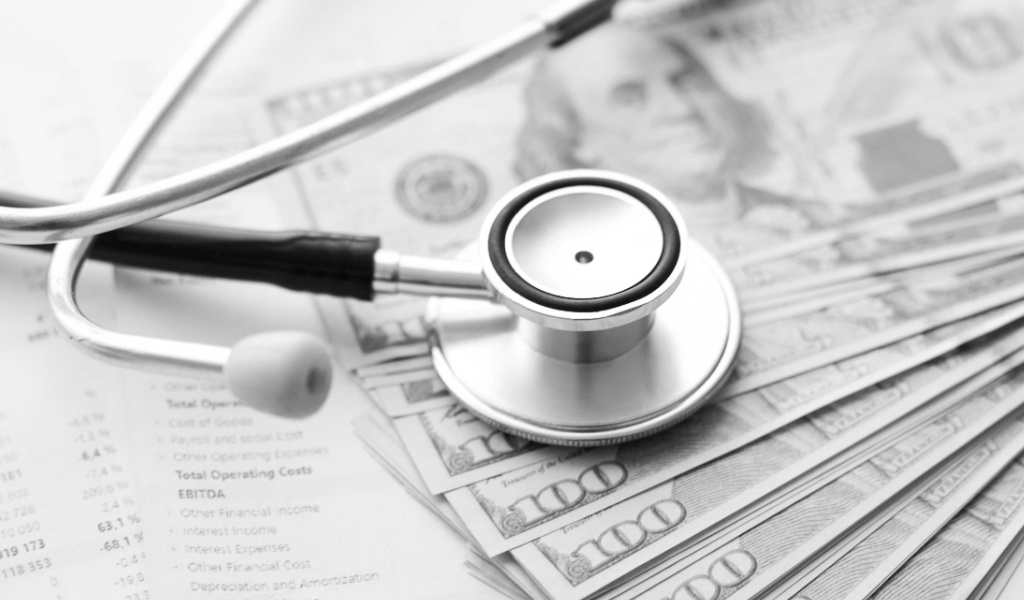With the ever-rising costs of lifestyle, healthcare costs are also on the rise. People are always looking for ways to cut healthcare costs, but this is more challenging than it sounds. You can never predict your future healthcare needs, not to mention sudden medical emergencies, which makes being prepared the only way to ensure that you’re not spending more than you can afford on medical care.

One of the most important things to do when working towards reducing your healthcare costs is to be honest with your healthcare providers. Don’t hesitate to ask them if any alternative options are available because you’re looking for the most affordable care options. You need to be honest about your healthcare priorities, which is why it’s worth exploring some efficient ways to reduce your costs. Let’s explore some of these avenues below:
Save Money On Medications
Consider changing how you pay for medicines. There are many ways to be more cost-effective when buying medications. For example, you can switch to generic brands, which are the same as their brand-name counterparts – only at half the cost! Just ensure the drug is marked safe by the FDA, and consult your doctor if you’re apprehensive about it.
You can also ask your healthcare provider to prescribe less expensive medications. If you’re purchasing long-term medications, consider ordering from online pharmacies to take advantage of bulk purchases for a lower copay.
Plan For Emergency Care
An accident can happen at any time, so it’s best to stay prepared for one. A key aspect of planning ahead for emergency care includes understanding what problems require emergency care, what needs an urgent care clinic, and what can wait until a primary care provider can assess it. For example, if a person is suffering from acute breathing problems, severe bleeding, excruciating pain, or something equally severe, it’s an emergency that needs to be treated immediately. A good way to tell if you need urgent care is if you cannot wait until the next day to get help. This includes bladder infections, dog bites, strep throat, etc.
Knowing what type of care you require can save time and money – both crucial in a medical emergency. Seeking care from your provider or an urgent care center is cheaper than going to the emergency department. Research the urgent care centers near you and study how to recognize an emergency in a child or adult. You can also take a first aid class from your local hospital or community center to better understand what to do in an emergency.
Assess Your Health Insurance Coverage
Contrary to what most people assume, the health plan with the most coverage is not always the best option, particularly if you’re young and in good health. Given that most young people are just starting out in their careers and don’t have a lot of money to spare, it can also place a significant strain on their finances. Assess your health plan and previous medical expenses to ensure you benefit from the policy. You don’t want to be over-insured or under-insured, so you should select a policy that suits your needs.
Low-deductible health plans have a lower upfront payment and a higher monthly premium. These plans are more suitable for people with severe health conditions or who require expensive medications. On the other hand, high-deductible plans have a higher out-of-pocket cost before the policy kicks in, but they also come with the option of funding a Health Savings Account (HSA), which has excellent tax benefits. Such plans are ideal for people who are generally healthy and don’t expect serious healthcare needs.

Enroll In an FSA or HSA
If you have a high-deductible health plan, you can access an HSA (Health Savings Account), and most employers offer an FSA (Flexible Savings Account). These tax-advantaged accounts can help you save hundreds of dollars in healthcare every year. They can cover medical expenses like copays, vision examinations, prescriptions, eyeglasses, and dental expenses – all of which can cost a bomb if you were to fund them out-of-pocket!
HSAs offer a triple tax advantage:
- Contributions are pre-tax dollars.
- The invested assets grow tax-free.
- Withdrawals are not subject to tax if they are used for medical expenses.
As a result, account holders can take advantage of significant tax savings on medical costs. However, it’s important to remember that with FSAs, the funds should be used within the same year, depending on the employer’s provisions.
Prevention Is Better Than Cure
It never hurts to take precautions, especially when it comes to your body. The more you procrastinate on your health, the more you’ll have to pay, literally and figuratively. Make sure to keep track of your routine health screenings, and don’t put them off. This way, you can detect any health issues early so they can be easily treated – early intervention is key in managing severe health issues. Besides, health screenings, annual visits, and vaccines don’t generally require a copay, so they’re essentially “free” when you have health insurance!
Remember, as you age, your house ages with you, too, so it’s essential to stay on top of home repairs and make your home an accessible living space, particularly if you’re an older adult. As you age, you may need to consider installing extra accessories such as grab bars in showers, lower cabinets, guide rails on stairs, etc. This way, you reduce the risk of injuries and falls common in older adults, which could otherwise lead to hefty hospitalization costs or long-term care facilities.
Bottom Line
The tips mentioned above are some of the easiest ways to bring down your healthcare costs. But the simplest and most effective way to save money on healthcare is to take care of your health. You can lower the risk of developing health issues by prioritizing regular exercise, healthy eating, maintaining a healthy body weight, and reducing stress.
Maintaining good overall health helps you get better rest and sleep, boosts your mindset, promotes healthier muscles and bones, improves your coordination and balance, and decreases your chances of developing a chronic illness. So staying active and eating healthy keeps your body fit and more vital in fighting diseases. This, in turn, cuts down on costly treatments, tests, medications, and other healthcare expenses.



